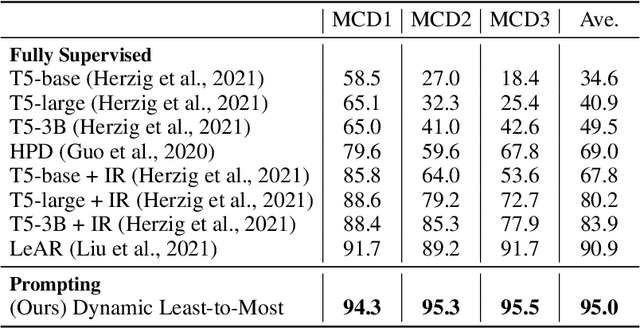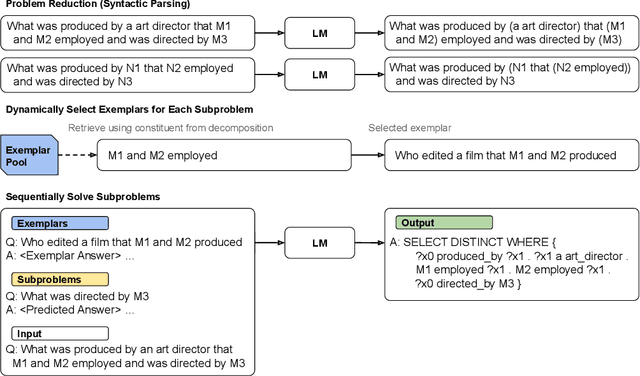Compositional Semantic Parsing with Large Language Models
Paper and Code
Sep 30, 2022



Humans can reason compositionally when presented with new tasks. Previous research shows that appropriate prompting techniques enable large language models (LLMs) to solve artificial compositional generalization tasks such as SCAN. In this work, we identify additional challenges in more realistic semantic parsing tasks with larger vocabulary and refine these prompting techniques to address them. Our best method is based on least-to-most prompting: it decomposes the problem using prompting-based syntactic parsing, then uses this decomposition to select appropriate exemplars and to sequentially generate the semantic parse. This method allows us to set a new state of the art for CFQ while requiring only 1% of the training data used by traditional approaches. Due to the general nature of our approach, we expect similar efforts will lead to new results in other tasks and domains, especially for knowledge-intensive applications.
 Add to Chrome
Add to Chrome Add to Firefox
Add to Firefox Add to Edge
Add to Edge